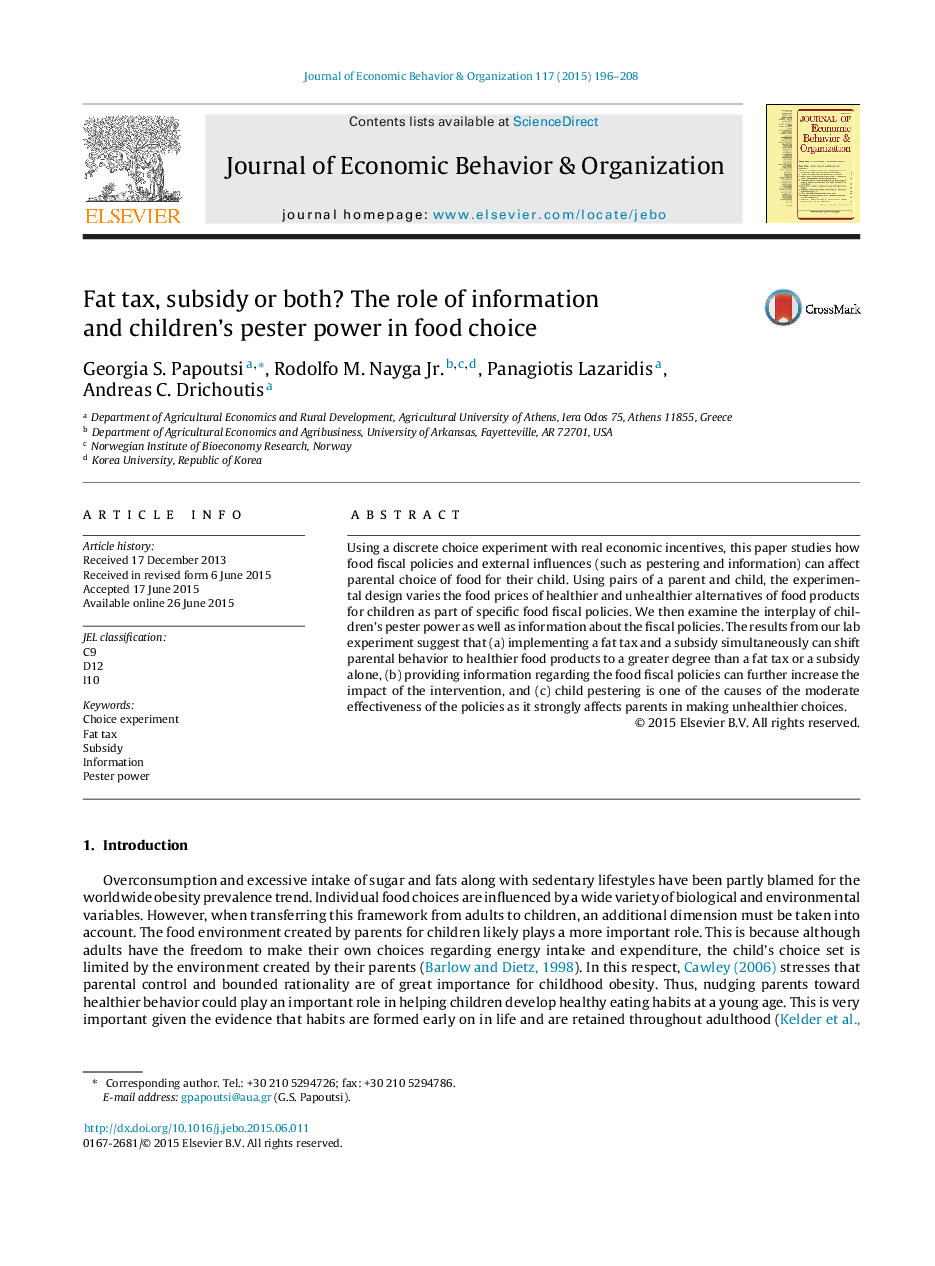| Article ID | Journal | Published Year | Pages | File Type |
|---|---|---|---|---|
| 7243057 | Journal of Economic Behavior & Organization | 2015 | 13 Pages |
Abstract
Using a discrete choice experiment with real economic incentives, this paper studies how food fiscal policies and external influences (such as pestering and information) can affect parental choice of food for their child. Using pairs of a parent and child, the experimental design varies the food prices of healthier and unhealthier alternatives of food products for children as part of specific food fiscal policies. We then examine the interplay of children's pester power as well as information about the fiscal policies. The results from our lab experiment suggest that (a) implementing a fat tax and a subsidy simultaneously can shift parental behavior to healthier food products to a greater degree than a fat tax or a subsidy alone, (b) providing information regarding the food fiscal policies can further increase the impact of the intervention, and (c) child pestering is one of the causes of the moderate effectiveness of the policies as it strongly affects parents in making unhealthier choices.
Related Topics
Social Sciences and Humanities
Economics, Econometrics and Finance
Economics and Econometrics
Authors
Georgia S. Papoutsi, Rodolfo M. Jr., Panagiotis Lazaridis, Andreas C. Drichoutis,
